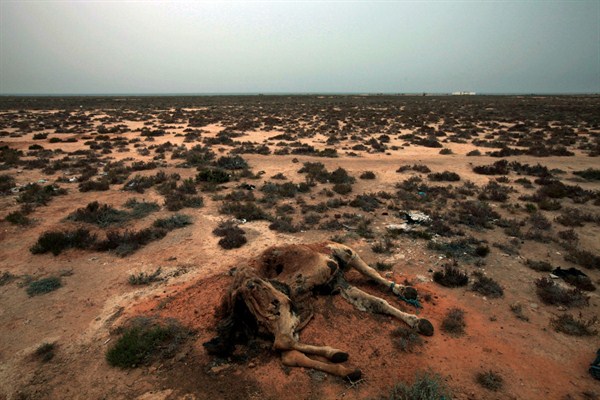With new outbreaks of political protests in Iran and Tunisia, there are questions again about the role played by environmental issues, including human-caused climate change, in stoking unrest and discontent in the Middle East. In Iran, where protests have been underway since late December, observers are making explicit linkages, drawing the connection between water scarcity that displaces farmers and government corruption and incompetence. Many protesters do not believe their government has any credible policy responses to the environmental stress and, instead, encourages water usage policies that make the problem worse. In Tunisia, where demands for political and economic reforms are the focus of protests that began earlier this month, the connection to environmental and climate issues is more implicit, and not openly identified as a major factor for demonstrators.
At the start of the Syrian uprising in 2011, before it turned into the tragic and protracted civil war, it became a conventional view that one major trigger of the revolt was a severe drought that drove farmers to the cities, which added to the political distress that then exploded in the streets. I was reluctant at the time to give too much weight to any one factor to explain why a repressed society finally reaches a breaking point. But scientists who have produced two major investigations into the drought have provided compelling evidence of its severity and potential to disrupt normal economic patterns, in one case concluding that from 1998 to 2012, the Levant region experienced its driest conditions in 500 years.
The development community has long understood how the environment is a key variable for effective economic growth strategies. Countries that are losing environmental resilience, through water scarcity, severe weather or the loss of natural resources, have to make hard choices about how to sustain life and generate jobs in challenging conditions. Some countries can benefit from early interventions to mitigate the effects of climate change and to be more responsible stewards of their natural resources. In some cases, it may mean abandoning crops that deplete water resources, or introducing new technologies to improve water efficiency. Good governance is a necessary ingredient, since so many countries have squandered what could have been sources of national wealth through corruption and illicit trade.

